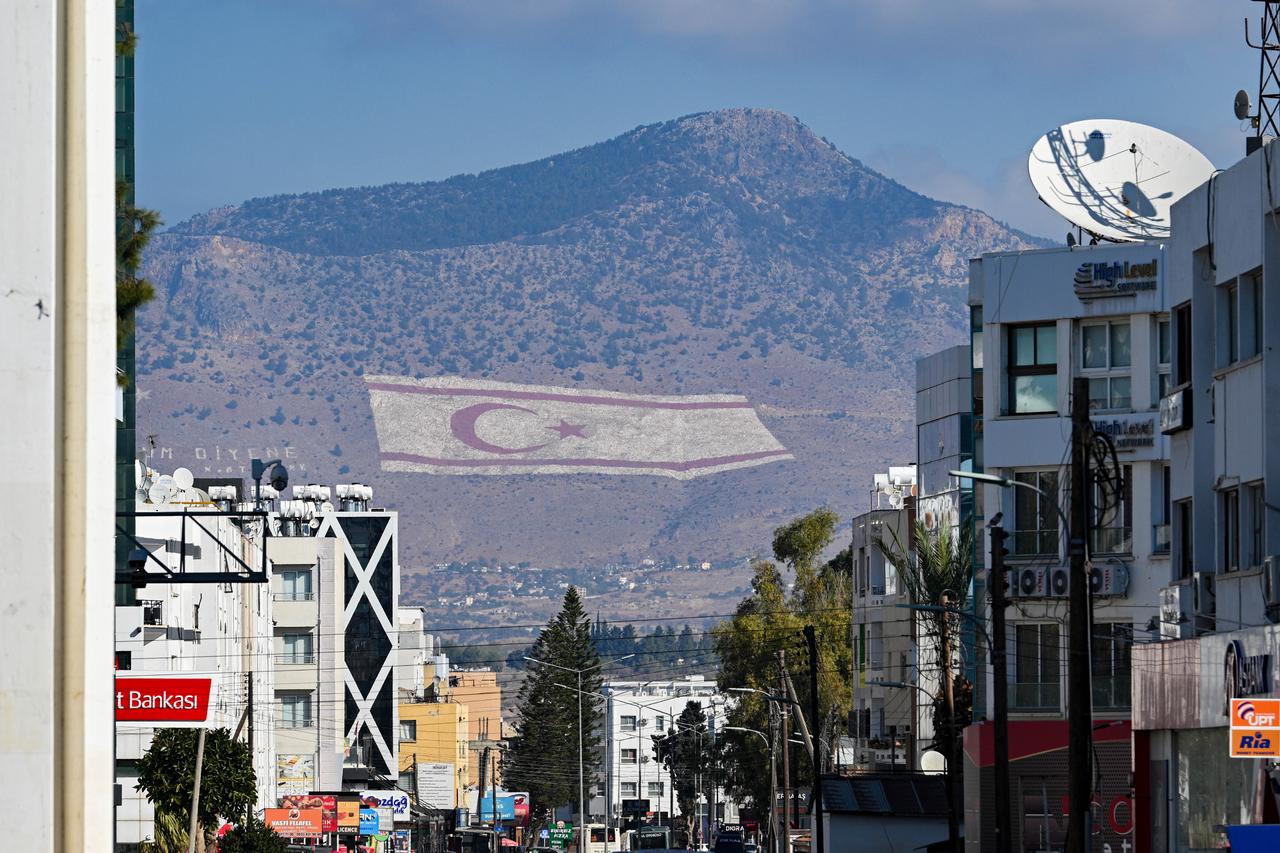
The presidential elections held in the Turkish Republic of Northern Cyprus (TRNC) on Oct. 19, 2025, have brought the country's internal political balance and approaches to the future of the Cyprus issue back to the forefront.
According to unofficial results announced by the High Electoral Board, Tufan Erhurman, leader of the Republican Turkish Party (CTP), was elected as the new president with 62.7% of the vote, while independent candidate and former President Ersin Tatar received 35.8% of the vote. The turnout was approximately 63%, with over 218,000 voters casting their ballots.
A total of eight candidates participated in the election process, but the race essentially took shape along two main lines (supporters of a federal solution and advocates of a two-state solution).
Tufan Erhurman's victory has been interpreted as an expression of support for the ‘two-community, two-zone federation’ vision that the CTP has long embraced.
In contrast, Ersin Tatar continued the ‘two sovereign states’ solution policy he initiated in 2020, emphasizing that Türkiye's guarantee and the presence of the Turkish Armed Forces on the island are the guarantee of security and sovereignty for the Turkish Cypriot people.
Throughout the election campaign, Tatar argued that the TRNC's international visibility had increased thanks to the two-state policy pursued with Türkiye's support, while Erhurman claimed that this approach had alienated Turkish Cypriots from the negotiating table.
Consequently, the elections were not merely a choice of leader but a contest between two different visions for the Cyprus issue.
Prof. Dr. Ata Atun, Member of Parliament for the 1st Term of the Turkish Republic of Northern Cyprus, shared his assessment of the election results with me, stating, "The fact that President Ersin Tatar, who was supported by the ruling coalition, received significantly fewer votes than expected demonstrates that the fragility within the government was reflected at the ballot box. The ruling coalition government must analyze this situation carefully. Otherwise, they may face a serious risk in the parliamentary elections planned for 2027."
"The Republican Turkish Party's conversion of Erhurman's 63% support into a call for early elections will increase the pressure on the government.
However, based on Erhurman's statements, it is anticipated that the strategic continuity of Türkiye-TRNC relations will be maintained, and there will be no changes in cooperation within the Organization of Turkic States or in the presence of the Turkish Armed Forces on the island," Atun added.
Following the election results, important statements were also made from Türkiye.
President Recep Tayyip Erdogan congratulated Erhurman, emphasizing the democratic maturity of the Turkish Cypriot people; Vice President Cevdet Yilmaz and Turkish Parliament President Numan Kurtulmus reiterated that Türkiye would “stand by the TRNC and Turkish Cypriots under all circumstances.”
The table in question demonstrates that the elections carry strategic significance not only in terms of domestic politics but also in terms of Türkiye-TRNC relations and the future of the Cyprus issue.
Although the name that emerged from the ballot box is close to a federal approach, from the perspective of international law, security and regional balance, the two-state solution vision continues to be the model that best suits the sovereignty and security needs of the Turkish Cypriot people.
The two separate administrations that emerged with the Turkish Armed Forces establishing peace on the island have, over the past half-century, built their own institutions, democracies and social orders.
Today, the demand of the Turkish Cypriot people is for this existing political reality to be recognized by the international community and cemented with permanent security guarantees.
The two-state solution vision has emerged as a necessity in the face of the failure of federation efforts and the unilateral stance of the Greek Cypriot side in the negotiation processes.
As clearly seen in the 2004 Annan Plan and the 2017 Crans-Montana talks, the Greek Cypriot side has not abandoned its insistence on “single sovereignty” and “single international identity,” continuing its efforts to reduce the Turkish Cypriot side to minority status by rejecting political equality.
This situation demonstrates that the federation model is no longer practicable and that a solution based on two sovereign states is a fair, sustainable and secure alternative.
The reintroduction of the federation does not merely mean repeating the failed formulas of the past; it could also lead to a decline in the TRNC's sovereignty consciousness and international visibility. In a federal structure, the Turkish Cypriot side would become a component of a united structure under the name "Republic of Cyprus," effectively losing its independent state status.
Furthermore, a federation would bring with it the risk of constant veto crises, decision-making deadlocks and administrative instability in the governing mechanisms.
A two-state solution is also of strategic importance in terms of the geopolitical balance in the Eastern Mediterranean.
Türkiye's guarantee and military presence ensure the security of the Turkish Cypriot people while also protecting Turkish and TRNC interests in the region's energy and maritime jurisdiction equations.
The existence of the TRNC constitutes a critical strategic pillar for Türkiye's Blue Homeland doctrine.
The solution lies not in a federation, but in a model based on mutual respect and cooperation between two sovereign states existing side by side. This approach not only guarantees the security of the Turkish side but also ensures long-term and lasting peace on the island.
About the author: Zeynep Gizem Ozpinar is a board member and foreign policy specialist at the Turkish Foreign Policy Research Center (TUDPAM).